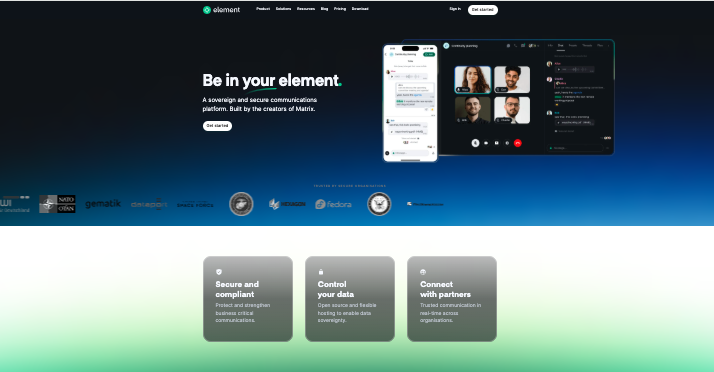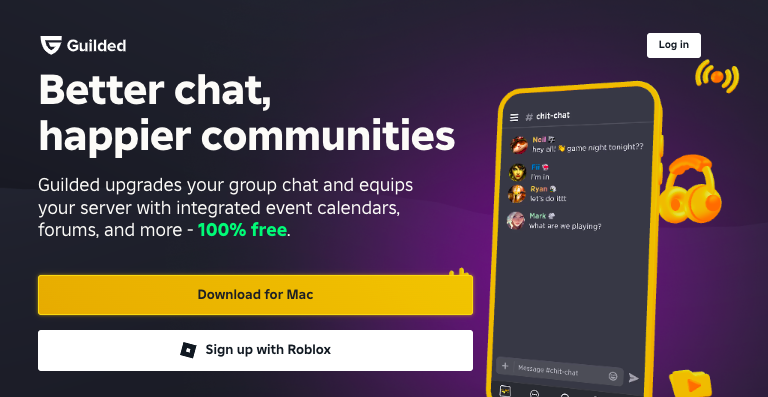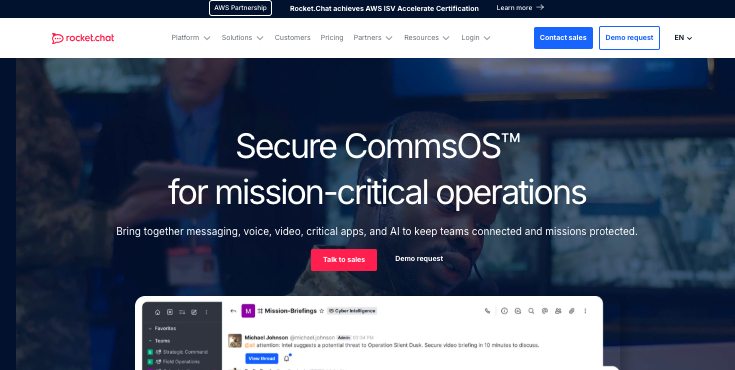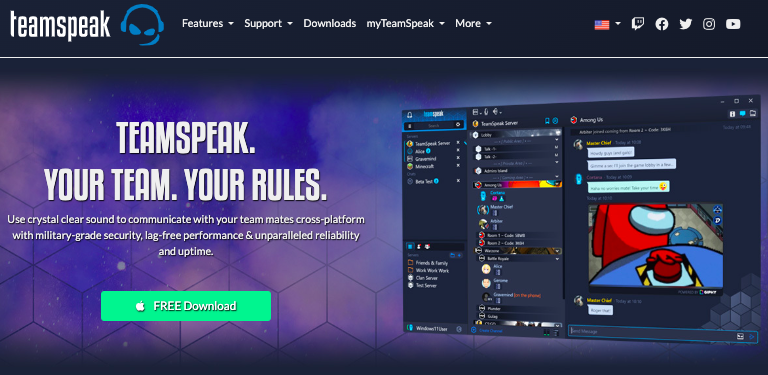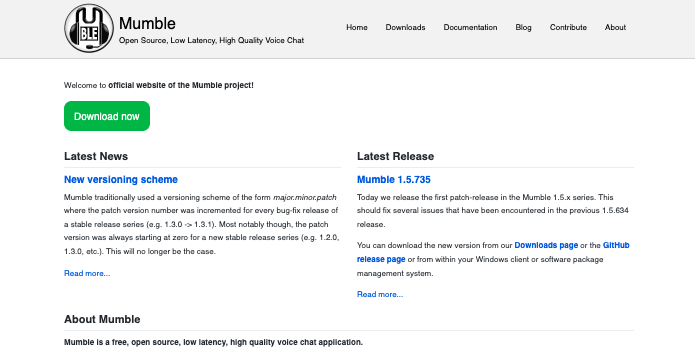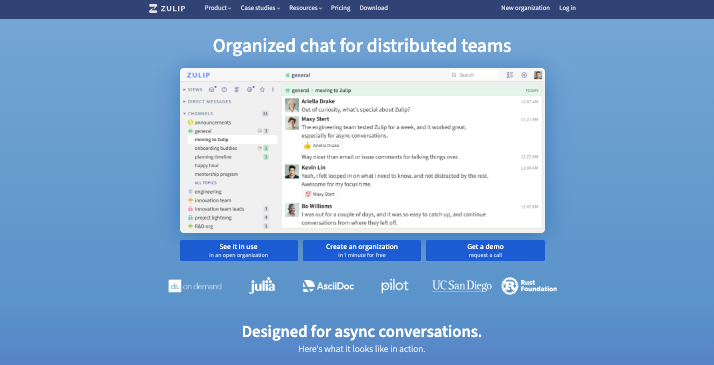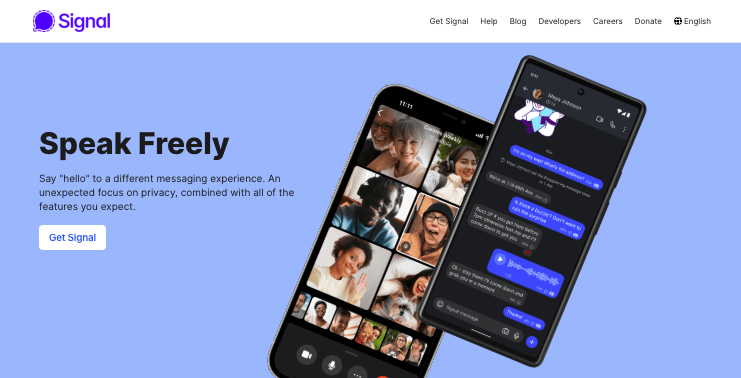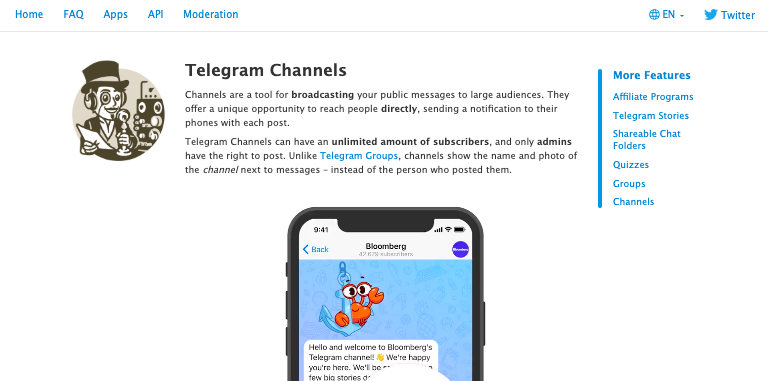Discord has evolved from a game-focused platform to a mainstream communication tool.
This has necessitated several communities to seek alternatives that offer greater privacy, enhanced customization, and specialized features for their private servers.
Whether you’re concerned about data policies, looking for self-hosting options, or simply want a fresh user experience, there are several viable alternatives to consider in place of Discord.
In this guide, we’ll explore ten impressive Discord alternatives that might better suit your community’s specific needs.
Let’s find out more.
Also Read: Open-source Discord Alternatives
1. Element (formerly Riot)
Element stands out as a privacy-focused messaging platform built on the Matrix protocol, offering end-to-end encryption by default. The platform combines secure communication with a familiar chat interface that supports voice and video calls, file sharing, and customizable rooms. Element particularly appeals to tech-savvy communities and those prioritizing data sovereignty, as it can be fully self-hosted while still connecting to the broader Matrix network.
Key Features
- End-to-end encryption for maximum privacy
- Self-hosting options with full server control
- Bridge functionality to connect with other platforms
- Open-source codebase with active development
- Cross-platform availability (desktop, web, mobile)
2. Guilded
Guilded positions itself as a direct Discord competitor with enhanced features specifically designed for gaming communities and organized teams. The platform offers a more structured experience with built-in calendars, tournament tools, and sophisticated role management that Discord lacks natively. Guilded’s generous free tier includes unlimited message history, larger file uploads, and higher quality voice chat without requiring premium subscriptions.
Key Features
- Extensive scheduling and calendar tools
- Free unlimited message history
- Advanced role and permissions system
- Built-in tournament organization
- Media sharing with higher file size limits
Explore the best alternatives to Discord for Gamers here.
3. Mattermost
Mattermost delivers an enterprise-grade open-source communication solution that emphasizes security and customization for professional environments. The platform allows organizations to maintain complete control over their data through self-hosting options while offering robust integrations with productivity tools. Mattermost’s interface will feel familiar to Slack users, making it an excellent choice for work teams seeking a private, customizable alternative to commercial platforms.
Key Features
- Enterprise-focused security compliance
- Extensive integration options with development tools
- Self-hosting with complete data control
- Customizable workflows and automation
- Searchable message history and file sharing
Check Out: Best Disboard Alternatives
4. Rocket.Chat
Rocket.Chat offers an impressive self-hosted communication platform supporting text, voice, and video interactions within a highly customizable environment. The platform stands out with its extensive language support and marketplace of integrations, making it suitable for global organizations. Rocket.Chat’s open-source nature and active development community have created a robust alternative that scales from small teams to enterprise deployments.
Key Features
- Self-hosting with white-label customization
- End-to-end encryption options
- Live translation for multilingual teams
- Video conferencing and screen sharing
- Extensive API for custom integrations
Explore the best alternatives to TeamSpeak here.
5. TeamSpeak
TeamSpeak remains the gold standard for low-latency voice communication, particularly valued in competitive gaming communities where milliseconds matter. The platform offers unparalleled voice quality and connection stability with minimal resource usage compared to browser-based alternatives. TeamSpeak’s permission system provides granular control over every aspect of the server, making it ideal for communities with complex hierarchical structures.
Key Features
- Military-grade security and encryption
- Ultra-low latency voice communication
- Advanced permission system
- Minimal system resource usage
- Customizable with plugins and add-ons
Also Read: Mumble vs TeamSpeak
6. Mumble
Mumble delivers an open-source, lightweight voice communication platform focused on minimizing latency while maintaining voice clarity. The software uses significantly fewer system resources than most alternatives, making it accessible on lower-end hardware. Mumble’s positional audio feature, which places voices in 3D space based on in-game positions, creates an immersive experience for gaming communities that no other platform matches.
Key Features
- Extremely low latency optimized for gaming
- Positional audio support for spatial awareness
- Certificate-based authentication system
- Completely free and open-source
- Low system resource requirements
Explore: Discord vs Mumble
7. Slack
Slack has evolved beyond its workplace origins to become a viable option for communities seeking a polished, reliable communication platform with extensive integration capabilities. The platform excels at organizing conversations into channels with robust search functionality and seamless file sharing. While primarily targeting professional environments, Slack’s free tier offers enough functionality for casual communities wanting a clean, distraction-free alternative to Discord.
Key Features
- Excellent thread-based conversations
- Powerful search capabilities
- Extensive third-party integrations
- Polished mobile and desktop experiences
- Rich media embedding and sharing
Explore: Best Open-source Slack Alternatives
8. Zulip
Zulip reimagines chat with a unique threaded conversation model that organizes discussions by topic rather than chronology, preventing important messages from being lost in the stream. The platform combines email-like organization with real-time chat functionality, creating a hybrid that works exceptionally well for technical discussions and communities with multiple parallel conversations. Zulip’s open-source nature and self-hosting options make it attractive for privacy-conscious groups.
Key Features
- Topic-based threaded conversations
- Powerful search and filtering tools
- Full markdown support with syntax highlighting
- Open-source with self-hosting options
- Extensive API for custom integrations
9. Signal
Signal has expanded its renowned secure messaging platform to include group functionality robust enough to serve as a Discord alternative for smaller privacy-focused communities. The platform applies its industry-leading encryption standards to group chats, voice calls, and media sharing without compromising on user experience. Signal’s strong privacy focus, combined with its growing feature set, makes it an excellent choice for intimate groups prioritizing security above all else.
Key Features
- World-class end-to-end encryption
- Disappearing messages option
- Zero data collection policy
- Simple, distraction-free interface
- Cross-platform availability
Check Out: Is Signal App Used For Cheating?
10. Telegram Groups & Channels
Telegram offers a versatile platform that can serve communities through its combination of groups (up to 200,000 members) and broadcast channels with unlimited subscribers. The platform provides excellent media sharing capabilities, robust bot functionality for automation, and consistent performance across all devices. Telegram strikes a balance between feature richness and accessibility that makes it particularly appealing to non-technical communities seeking a straightforward Discord alternative.
Key Features
- Large file sharing (up to 2GB per file)
- Powerful bot platform for automation
- Public and private group options
- Extensive sticker and media support
- Cross-device synchronization
Also Read: Alternatives To Telegram App
Conclusion
All these tools offer compelling options for communities with specific needs that Discord doesn’t fully address.
Whether you prioritize privacy through self-hosting with Element or Mattermost, need gaming-specific features from Guilded, or want the ultimate voice quality from TeamSpeak, there’s likely a platform better aligned with your community’s priorities.
Consider evaluating these alternatives based on your specific requirements for privacy, customization, performance, and specialized features before making the switch from Discord.

